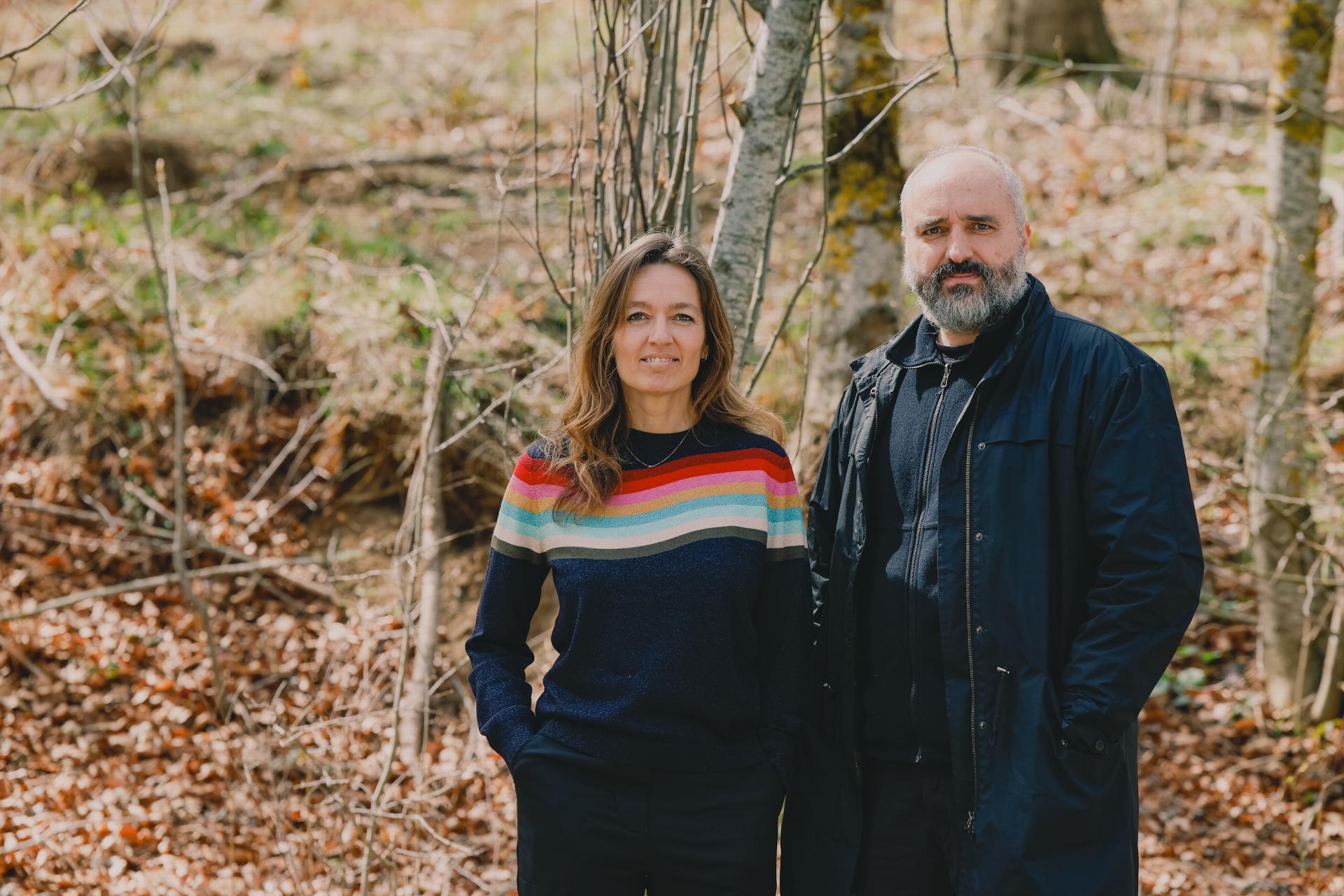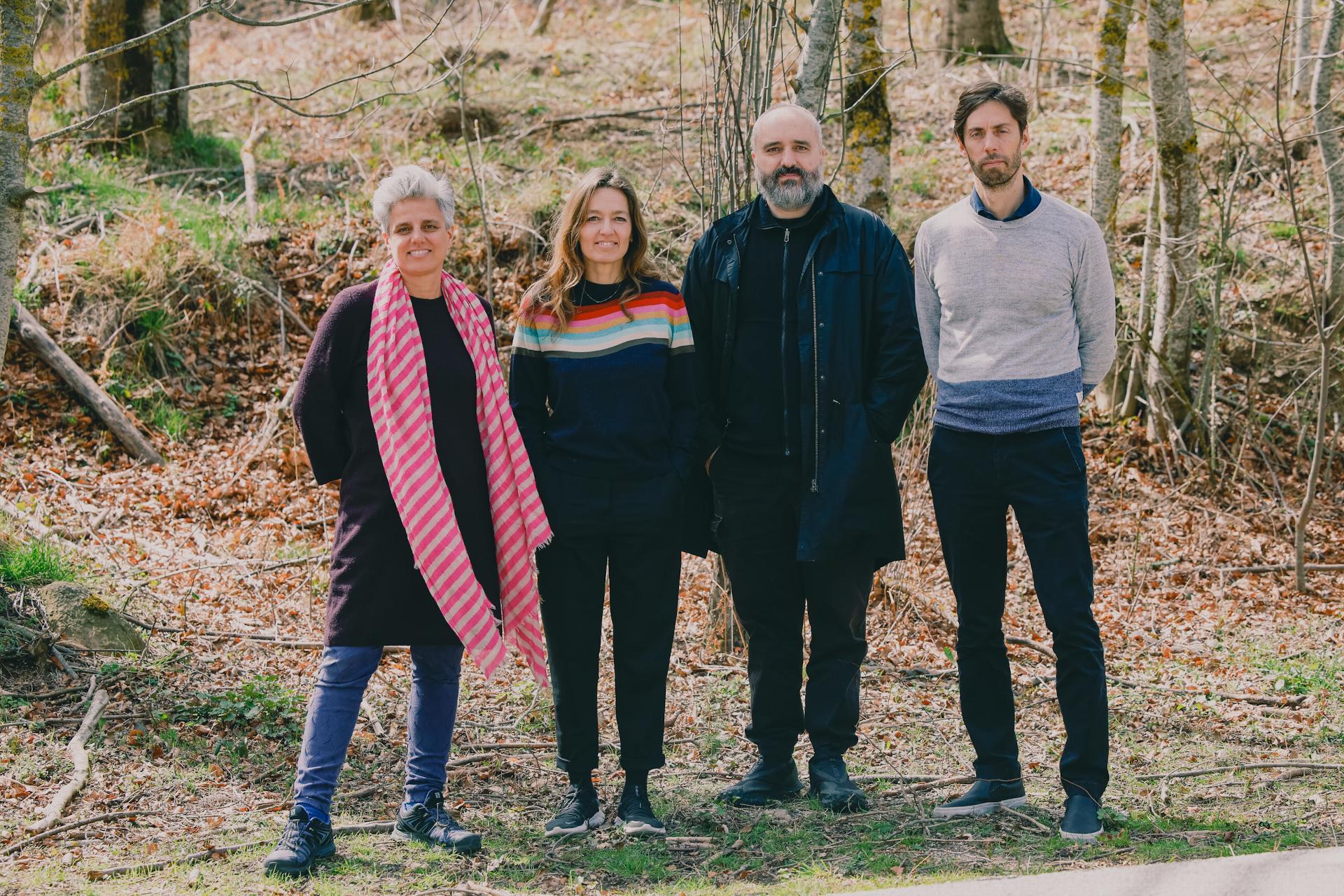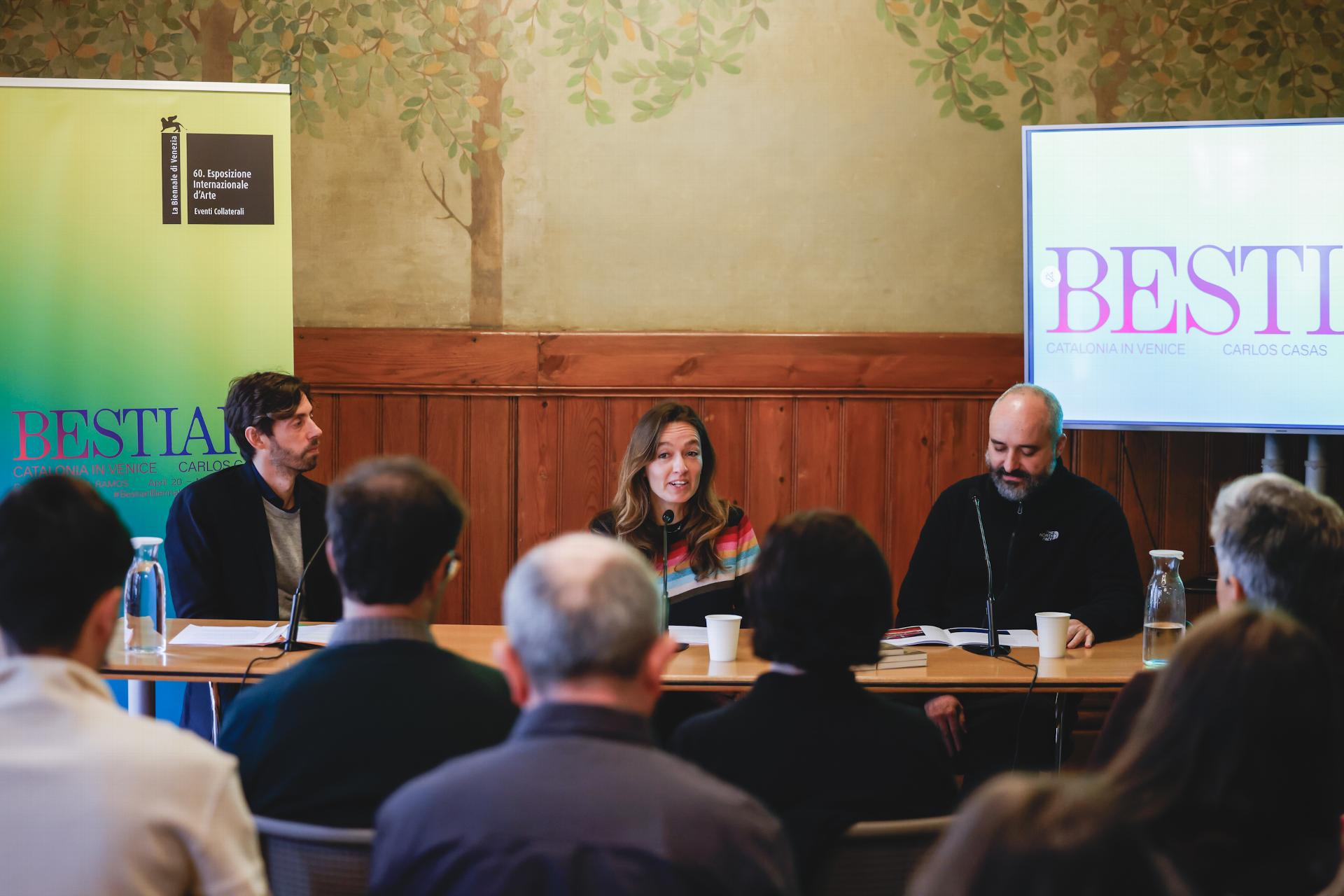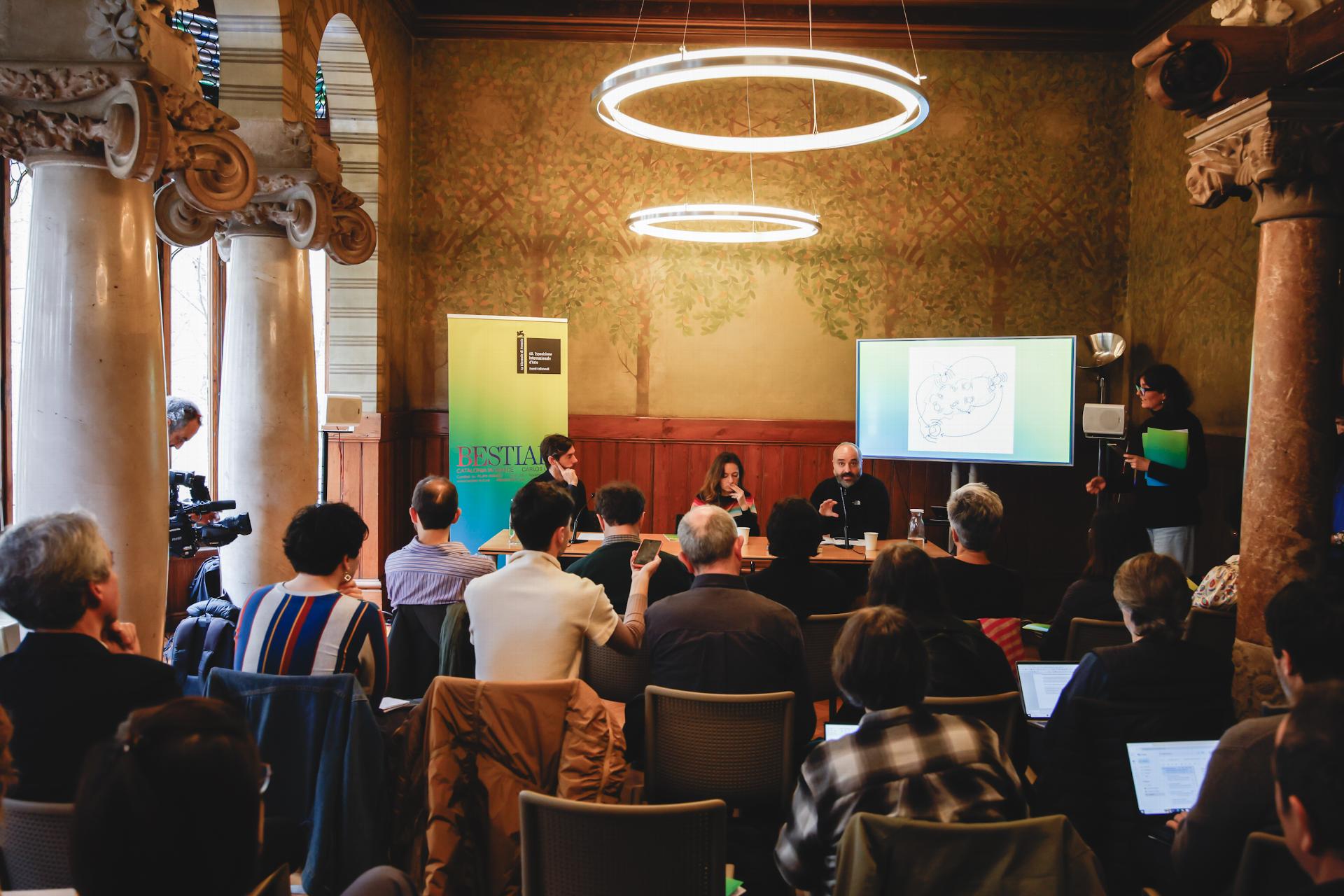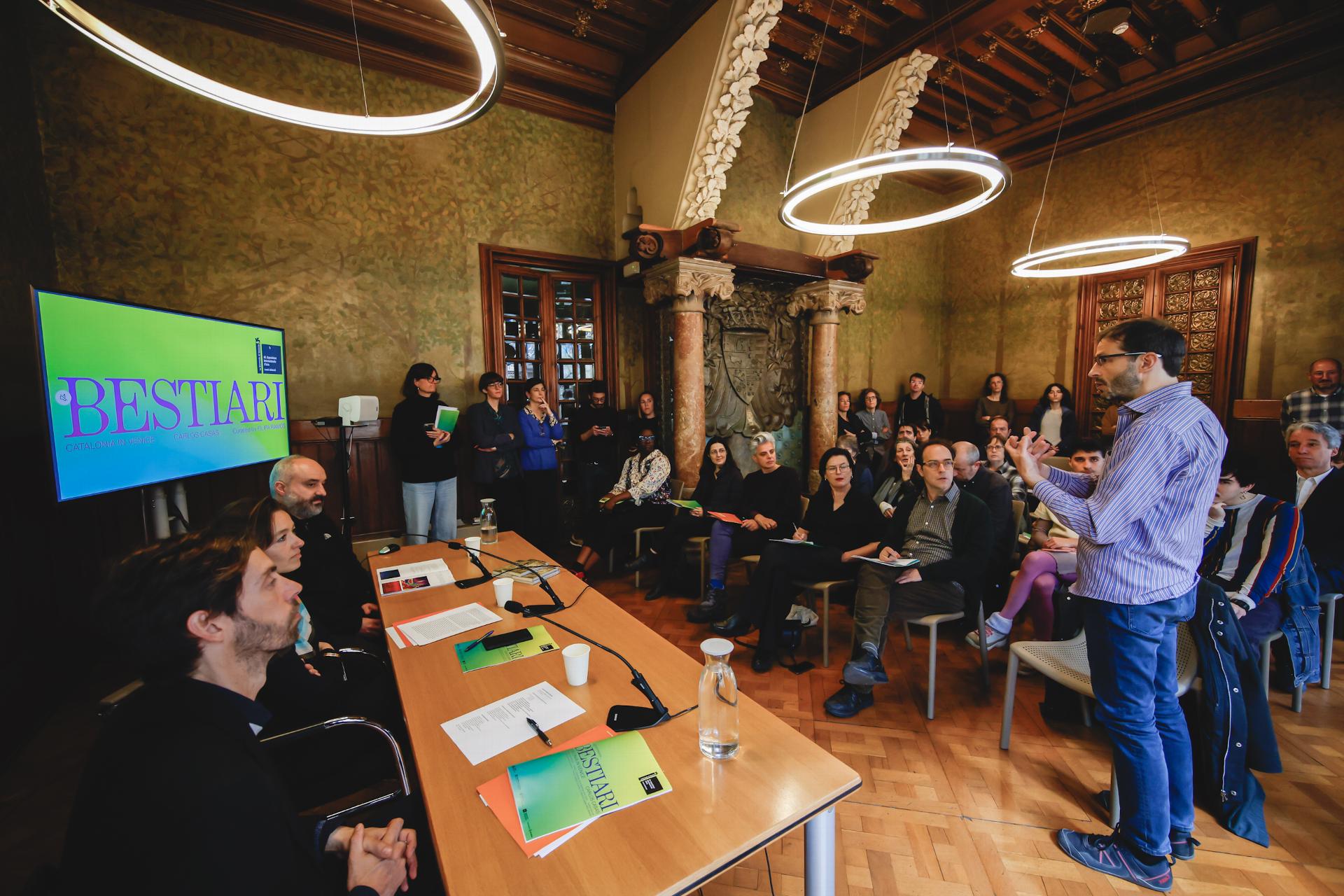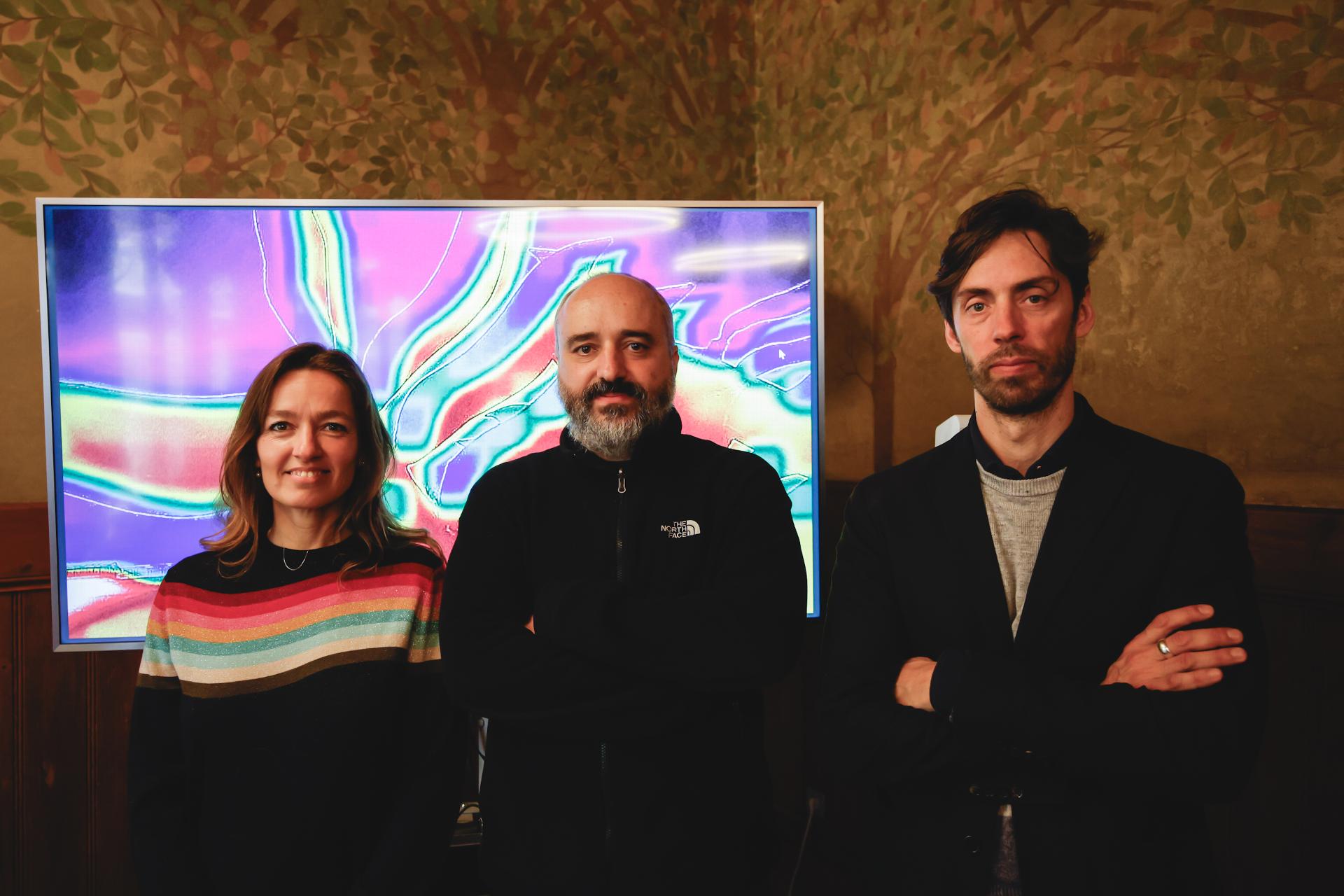The project, Bestiari, curated by Filipa Ramos and produced by the Ramon Llull Institute, was presented today in Venice. The Collateral Events of the 60th International Art Exhibition of La Biennale di Venezia will be hosting the exhibition from April 20 to November 24.
Bestiari is an immersive audiovisual experience that immerses visitors in a hypnotic environment of sounds and images emitted by animals and creatures that inhabit the pastoral and imaginary landscapes of Catalonia. As a starting point, it uses the medieval text Disputa de l'ase, which was written by Anselm Turmeda in 1417. Turmeda is considered to be one of the founders of Catalan literature. The story is about a man who is put on trial by a group of animals who question the idea of human superiority over other beings. Bestiari pays homage to the speaking animals depicted in the text by reproducing the sounds and images of bats, bees, dolphins, donkeys, elephants and other beasts.
A dream-like connection is created for visitors by projecting a large-format image that represents the vision of each species. This experience places the visitor in a state halfway between wakefulness and sleep. Ambisonics 3D sound spatialisation and infrasound recordings produce frequencies beyond the human sensory field.
Pere Almeda, director of the Institut Ramon Llull, emphasized the project's connection to the major global challenges that challenge the world today. He stated that the belief that humans dominate the world and all the living beings that inhabit it has brought us to the brink of ecological collapse. Carlos Casas's Bestiari connects six hundred years of history between Turmeda's medieval fable, one of the first texts written in Catalan, and a contemporary proposal that awakens our conscience to take action.
Most of the sounds and images of Bestiari were recorded in 11 parks or protected natural areas in Catalonia. Carlos Casas stated that “documenting these landscapes is crucial for future generations to bear witness to the impact of these turbulent times on our environment. Sound is a container and channel that links us to affection and transforms mindsets that slow down our sustainable progress as a species”. Casas also pointed out that some of the recordings featured the renowned sound specialist, Chris Watson.
The recordings for Bestiari were made in the natural parks and protected areas of Catalonia, including the Ebro Delta Natural Park, the Cadí-Moixeró Natural Park, the Montgrí Natural Park, the Medes Islands and the Baix Ter, the Montseny Natural Park and Biosphere Reserve, the Sant Llorenç del Munt i l ‘Obac Natural Park, the Mas de Melons i Secans Natural Reserve in Lleida, the Montsec Mountain Range Protected Natural Area, the Boumort Mountain Range Protected Natural Area, the Boumort National Hunting Reserve, the Alt Pirineu Natural Park and the Cap de Creus Natural Park. The managers and teams of the Department of Climate Action, Food and Rural Agenda of the Generalitat of Catalonia and the Area of Natural Spaces and Green Infrastructure of the Diputació de Barcelona assisted in the recordings of the scenes.
Filipa Ramos' curatorial proposal aligns with the theme of the 2024 Art Biennial, Foreigners Everywhere, curated by Adriano Pedrosa, but expands beyond an anthropocentric vision to include the natural world. Ramos believes that Bestiari is a contemporary work that speaks to the present. The work invokes ecology and the intelligence of nature, imagining ways of living in harmony with the world around us, and reinforcing the importance of multiple perspectives. The project proposes Catalonia as a territory where a conciliatory and non-anthropocentric commitment to the world is possible. This world would allow us to imagine a different future for our relationships with other species through sound and images. "
Ramos edited the publication that accompanies Bestiari, which includes texts with references, facts, and narratives that were born from Carlos Casas's exhibition project. The publication presents its research topics and motivations in the manner of a field guide, contextualises the starting materials, and presents each of the animals that appear in the installation through a short story. The stories are written by emblematic authors who work in the world of art, ecology, and literature in Catalonia and other countries. Eva Baltasar wrote about elephants, Emanuele Coccia about bees, Pilar Codony about ASE, Yayo Herrero about parrots, Lucia Pietroiusti about snakes, Chus Martínez about dolphins, and Helena Vilalta about rats. The book also features texts by Pol Capdevila, Carlos Casas, Llúcia Martín, Albert Mestres, Filipa Ramos and Chris Watson. The text is published in Catalan, English and Italian.
The project also offers a public programme, Animalesc, by Pol Capdevila, a professor in the Department of Humanities at Pompeu Fabra University. Animalesc includes seminars and debates on the condition of animals and the relationships established with humans. It also includes research on animal languages and ways of recording them. In November 2023, the Pompeu Fabra University in Barcelona held the first seminar on “Bestiaries, past and present”. Llúcia Martín, professor of medieval Catalan literature, Albert Mestres, writer and playwright, translator of Disputa de l ‘ase, Rafael Doctor, art historian and painter, and Eze Páez, animalist philosopher, all participated. Two debates are scheduled for the upcoming months. The first debate, “The wild sounds of Catalonia”, will concentrate on the language of some animal species in Catalonia. The second debate, “Sound as a tool for preservation and aesthetic experience”, will assemble professionals in animal language, bioacoustics, sound art, and art theory.
Since 2009, the IRL has been responsible for producing and organising the participation of Catalan culture in the Collateral Events of the Venice Biennale of Art. The committee of experts who selected this year's proposal is made up of professionals with extensive and internationally acknowledged experience. Elvira Dyangani Ose, director of the Museu d ‘Art Contemporani de Barcelona (MACBA), chaired the committee. The members included Marko Daniel, director of the Joan Miró Foundation (Barcelona), Ruth Estévez, co-director of the Skowhegan School of Painting (Maine, United States), Oriol Fontdevila, researcher and professor, curator of the Catalan exhibition at the Venice Biennale of Art 2022, Ingrid Guardiola, director of the Bòlit - Centre d ’Art Contemporani de Girona, and Andrea Lissoni, artistic director of Haus der Kunst (Munich).
Carlos Casas is a filmmaker and artist whose practice encompasses film, sound and the visual arts. His works have been presented in international exhibitions like La Biennale di Venezia, Shanghai Biennale, Bangkok Biennale, and Istanbul Biennial. His films have been screened and awarded in festivals around the world, like the Venice Film Festival, International Film Festival Rotterdam, Buenos Aires International Film Festival, Mexico International Film Festival, CPH DOX Copenhagen and FID Marseille. Retrospectives of his films have been presented at international festivals and cinematheques and his work has been exhibited and performed in international art institutions and galleries such as Tate Modern in London, Fondation Cartier, Palais de Tokyo, Centre Pompidou in Paris, NTU CCA Singapore, Hangar Bicocca, and La Triennale in Milan, among others.
Filipa Ramos, PhD, is curator whose research focuses on how culture addresses ecology, attending to how contemporary art fosters relationships between humans and other creatures. Ramos is curator of Art Basel Film and Lecturer at the Master Programme of the Arts Institute of the Fachhochschule Nordwestschweiz, Basel, where she leads the Art & Nature seminars. She co-curated Songs for the Changing Seasons, the First Vienna Climate Biennial (2024), Persons Persones, 8th Gherdëina Biennial (2022) and Bodies of Water, 13th Shanghai Biennial (2021).

